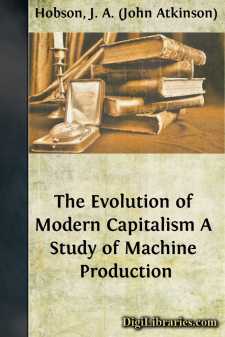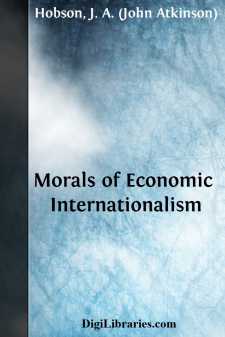Categories
- Antiques & Collectibles 13
- Architecture 36
- Art 48
- Bibles 22
- Biography & Autobiography 813
- Body, Mind & Spirit 142
- Business & Economics 28
- Children's Books 17
- Children's Fiction 14
- Computers 4
- Cooking 94
- Crafts & Hobbies 4
- Drama 346
- Education 46
- Family & Relationships 57
- Fiction 11829
- Games 19
- Gardening 17
- Health & Fitness 34
- History 1377
- House & Home 1
- Humor 147
- Juvenile Fiction 1873
- Juvenile Nonfiction 202
- Language Arts & Disciplines 88
- Law 16
- Literary Collections 686
- Literary Criticism 179
- Mathematics 13
- Medical 41
- Music 40
- Nature 179
- Non-Classifiable 1768
- Performing Arts 7
- Periodicals 1453
- Philosophy 64
- Photography 2
- Poetry 896
- Political Science 203
- Psychology 42
- Reference 154
- Religion 513
- Science 126
- Self-Help 84
- Social Science 81
- Sports & Recreation 34
- Study Aids 3
- Technology & Engineering 59
- Transportation 23
- Travel 463
- True Crime 29
The Evolution of Modern Capitalism A Study of Machine Production
Description:
Excerpt
INTRODUCTION.
§ 1. Industrial Science, its Standpoint and Methods of Advance.
§ 2. Capital as Factor in Modern Industrial Changes.
§ 3. Place of Machinery in Evolution of Capitalism.
§ 4. The Monetary Aspect of Industry.
§ 5. The Literary Presentment of Organic Movement.
§ 1. Science is ever becoming more and more historical in the sense that it becomes more studiously anxious to show that the laws or principles with whose exposition it is concerned not merely are rightly derived from observation of phenomena but cover the whole range of these phenomena in the explanation they afford. So likewise History is ever becoming more scientific in the sense that facts or phenomena are so ordered in their setting as to give prominence to the ideas or principles which appear to relate them and of which they are the outward expression. Thus the old sharp line, of distinction has slipped away, and we see there is no ultimate barrier between a study of facts and a study of the laws or principles which dominate these facts. In this way the severance of History and Science becomes less logically justifiable. Yet it is still convenient that we should say of one branch of study that it is historical in the sense that it is directly and consciously engaged in the collection and clear expression of facts or phenomena as they stand objectively in place or time without any conscious reference to the laws which relate or explain them; of another branch of study that it is scientific because it is engaged in the discovery, formulation, and correct expression of the laws according to which facts are related, without affecting to give a full presentment of those facts. The treatment in this book belongs in this sense to economic science rather than to industrial history as being an endeavour to discover and interpret the laws of the movement of industrial forces during the period of the eighteenth and nineteenth centuries.
It cannot, however, be pretended that any high degree of exactitude can attach to such a scientific study.
Two chief difficulties beset any attempt to explain industrial phenomena by tracing the laws of the action of the forces manifested in them. The first is that only a limited proportion of the phenomena which at any given time constitute Industry are clearly and definitely ascertainable, and it may always be possible that the laws which satisfactorily explain the statical and dynamical relations of these may be subordinate or even counteracting forces of larger movements whose dominance would appear if all parts of the industrial whole were equally known.
The second difficulty, closely related to the first, is the inherent complexity of Industry, the continual and close interaction of a number of phenomena whose exact size and relative importance is continually shifting and baffles the keenest observer.
These difficulties, common to all sciences, are enhanced in sociological sciences by the impossibility of adequate experiment in specially prepared environments....




